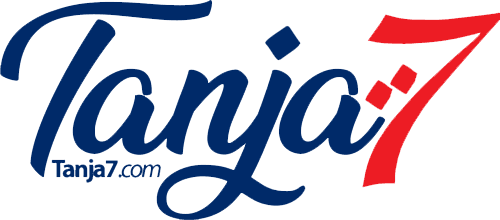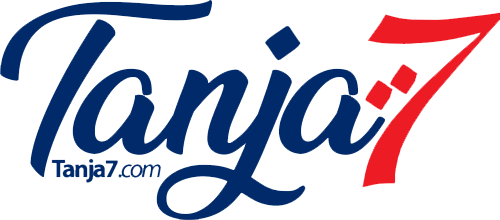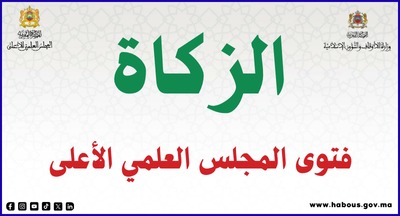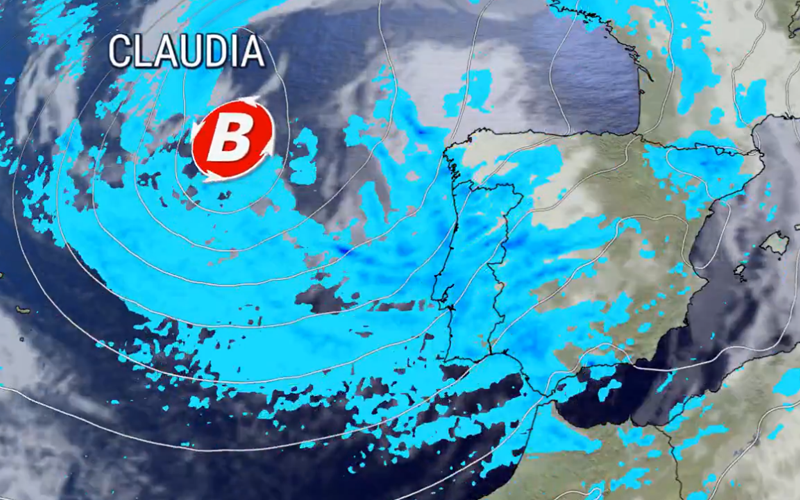The Ministry of Religious Endowments and Islamic Affairs has published a fatwa regarding zakat, issued by the High Scientific Council, at the request of King Mohammed VI.
Below is the text of the fatwa:
“Praise be to God, Lord of the worlds.
And peace and blessings be upon the trusted Messenger, and upon his noble family and companions.”
Introduction to the Fatwa
Initially, the General Secretariat of the High Scientific Council expresses its honor, with utmost reverence and loyalty, to His Majesty King Mohammed VI, may God assist him, President of the High Scientific Council, and conveys sincere appreciation for the honor conferred upon them through his noble directive to issue a legal fatwa on the rulings of zakat. This guidance enhances the protection of the faith by communicating and clarifying its pillars. The significance increases, and its symbolism rises, as it coincides with the directive to appropriately commemorate the 15th century anniversary of the birth of his noble ancestor, the revered Prophet Muhammad (peace be upon him), whose primary duty included delivering the pillars of the religion. Among these, in addition to faith, are establishing prayers and giving zakat, which is profoundly emphasized in the Quran regarding its immense value in the relationship with God and its deep impact in liberating individuals from stinginess.
May God preserve our esteemed Master and make him a steadfast custodian of his ancestor’s mission in everything that conveys it among the people.
Following this sincere expression and appropriate glorification, the High Scientific Council wishes to delineate the following essential clarifications at the forefront of this fatwa concerning zakat:
- The sole purpose of issuing this fatwa is to clarify the rulings of zakat for those obliged to fulfill it.
- By issuing the fatwa, scholars are performing their duty in reminding and communicating.
- This fatwa includes stating what is necessary for the obliged individuals concerning zakat-related sectors—types of wealth that require zakat, amounts due for each type, timing for its payment, and those eligible to receive it.
- The Council has relied predominantly on the Maliki school of thought for most of the rulings in this fatwa.
- The fatwa employs usual jurisprudential terminology with explanations facilitating comprehension for the general public.
- The fatwa encompasses what pertains to zakat as discussed in legal texts or derived from them. Given the expansion and complexity of human activities today—economically, financially, and socially—circumstances may arise that necessitate addressing them in accordance with original rulings or based on their principles. Therefore, the Council will continue to monitor the issues with ongoing diligence.
- Anyone with a specific case, especially regarding zakat for new profitable activities, can direct their questions to the High Scientific Council by submitting written or recorded inquiries via a website that will be announced by the Council after this fatwa’s publication.
- It is important to clarify the difference between tax and zakat: the tax is collected by the state from people in exchange for various services provided to them, while zakat is given by individuals from their wealth according to its legal rulings, benefiting the categories specified in the Quran.
- Zakat is given in response to God’s command.
- The intended purpose of zakat, as stated in the Quran, is to purify and elevate those who give it.
Thus, we state, and with God’s grace, that zakat is a pillar of Islam, an obligation among its major duties, and a foundation upon which other Islamic rulings are built, which are essential for a Muslim’s life.
This fatwa outlines the essentials that a Muslim should be aware of regarding this obligation and provides necessary rulings according to the Maliki school of thought.
Zakat is a specified right that God imposed on wealth when it reaches a certain amount, to be distributed to the designated recipients as stated in the Quran.
Text of the Fatwa
The Wealth Subject to Zakat
The concept of wealth has expanded in the modern reality and can be categorized into the following major sectors:
- Agriculture
- Livestock
- Non-grain agricultural products
- Forestry
- Fishing
- Trade
- Industry
- Services
Each sector contains numerous types of wealth subject to zakat; reference may be drawn from the “Moroccan Classification of Economic Activities” published by the High Planning Commission.
Agricultural Sector
For grains, zakat is due when the amount reaches the nisab, which is five wasqs (approximately 653 kg), with one-tenth (10%) due if irrigated by rainwater, or half-tenth (5%) if it requires irrigation costs. Zakat can also be paid in cash based on its market value.
Livestock Sector
- Camels: The nisab is five heads.
- Cattle: The nisab is thirty heads.
- Sheep and goats: The nisab is forty heads.
Zakat may also be paid in cash equivalent to their market value.
Regarding other zakat categories not pertaining to grains and livestock, their nisab is determined by currency values, following the nisab of gold and silver.
The nisab for gold is twenty dinars (equivalent to 85 grams), and for silver, it is two hundred dirhams (equivalent to 595 grams), leading to a nisab for wealth zakat relative to silver being 7438 Moroccan dirhams based on today’s silver price (12 dirhams per gram), and for gold (based on 800 dirhams per gram) is 68000 Moroccan dirhams. These amounts may change with price fluctuations.
The fatwa suggests using silver valuation to establish nisab, although those wishing to use gold valuation may do so.
Products from Agriculture Other than Grains
Includes:
- Market-targeted plants like vegetables and fruits, ornamental plants, aromatic plants, and products for drink like coffee and tea.
- Forest products like wood and its derivatives, and seafood.
These are assessed based on their value once they reach the nisab, with a due output of one-twentieth (2.5%) of their value.
Trade Sector
Includes all types of trading in goods and services, as well as equities and currencies. Zakat is imposed when their value corresponds to nisab after deducting operating costs.
Industrial Sector
Encompasses diverse industries, including food production and others, with zakat required once values reach the nisab after deducting production expenses.
Services Sector
Features various activities including public and private sector wages, with zakat due if total earnings meet the nisab after personal expenses are deducted.
Zakat on Debts
Debts can be classified as owed to you or owed by you. For your receivables, they may be further categorized into:
- Expected debts (where the debtor is known to repay).
- Hopeless debts (where the debtor is unable to repay). Only the first type is subject to zakat when nearing the anniversary of its due date.
Zakat is not due on debts owed by you.
When Zakat is Due
Zakat should be paid promptly after its due date; delaying it is discouraged.
The timing differs by asset types:
- Agricultural produce: Zakat is due upon harvest or collection.
- Livestock: Zakat is due after one year of holding.
- Minerals: Zakat is due upon extraction, adjustable within a year.
- Trade goods: Zakat is due after a year regarding nisab.
Recipients of Zakat
Zakat distribution must align with those categories deserving of it as indicated in the Quran.
These include:
- The poor and needy, who require support.
Zakat cannot be given to those who are dependent on you, such as poor parents or children. Items used for adornment do not qualify unless sold and the proceeds reach nisab with one year passing.
“Peace be upon you and God’s mercy and blessings.”
















